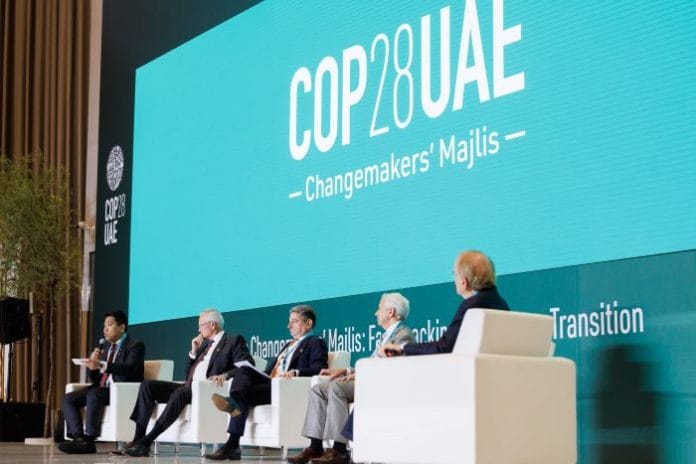The recently concluded COP28 UN climate summit included a call for countries to transition from fossil fuels –the first-time fossil fuels have been mentioned in this way in the final text. While not the bold commitment to phase out these emissions-heavy energy sources that several governments and climate campaigners had hoped for, the statement nevertheless indicates a ratcheting up in ambition. Improving dialogue between the US and China helped sustain the summit, even as sparring between high-ambition countries and oil-producing states threatened to derail it.
COP28 Outcome to Shore Up Labelled Debt Issuance
For investors, it suggests the focus on transition-related finance –and with it planning and target-setting –that rose to prominence in 2023 is likely to gain further momentum in 2024, and affect a wider range of fossil fuel and related industries.
The call regarding fossil fuels formed part of the wider Global Stocktake (GST), the first such exercise under the Paris Agreement, which found that current climate policies are inadequate, noting that 2023 is likely to be the warmest year on record. The GST text calls on countries to triple renewable energy capacity and double energy-efficiency improvements by 2030, as well as accelerate decarbonisation in other areas. This suggests continued momentum for issuance of labelled debt from such sectors as clean energy, transport, infrastructure and real estate.
The strong presence of financial intuitions and investors at COP28also points to interest in financing green projects, while the broad endorsement and statements of support for the International Sustainability Standards Board’s disclosure standards could lead to greater transparency for market participants around climate-related risks and opportunities.
Broadening Thematic Remit for Climate Initiatives
Another notable feature of COP28 was the inclusion of special sessions addressing the social implications of climate change, which Sustainable Fitch expects to result in policymakers and market participants launching more diverse sets commitments and initiatives.
Public health featured prominently. This was the first COP summit to allocate a day to the implications of climate change for human health, which encouraged governments to integrate health concerns into climate planning. Several major donors committed new funding to climate-related health initiatives. Food security received special attention, with more than 150 countries signing the COP28 UAE declaration on agriculture, food and climate action, suggesting agribusiness will be a focus for transition planning in the coming years.
This broadening of climate initiatives includes efforts to increase mitigation ambition from non-energy sectors. In particular, the Building Breakthrough agreement led by the International Code Council, received support from 28 countries and pushes for the transition towards near-zero and resilient building by 2030(buildings are one of the largest sources of emissions).
COP29will be held in Azerbaijan, while COP30 could be hosted in the Brazilian city of Belem. The latter’s Amazonian location could spur momentum for more detailed discussions and firmer commitments to halt deforestation, which were lacking at COP28. In the interim, countries will continue to update and submit their Nationally Determined Contributions as part of the current round, which wraps up in 2025.









